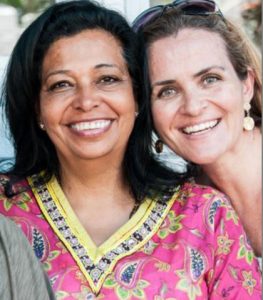Study probes experiences of migrant women
One in three refugee and migrant women living in Australia have experienced some form of domestic and family violence, with nearly a quarter reporting this has increased in severity during COVID-19 lockdowns, according to a new study.
While not a representative survey, the study, by researchers from Monash University’s Migration and Inclusion Centre and Harmony Alliance, provides a snapshot of the experiences of migrant and refugee women across the country.
 The study found temporary visa holders consistently reported proportionately higher levels of domestic and family violence, including controlling behaviours.
The study found temporary visa holders consistently reported proportionately higher levels of domestic and family violence, including controlling behaviours.
Temporary visa holders also reported much higher patterns of migration-related abuse and threats, such as threats to be deported or separated from their children.
It also asked broader questions pertaining to women’s safety and security, including trust in police and institutions, experiences of general victimisation, and employment and financial security before and during the COVID-19 pandemic.
The study was split into key themes.
On the theme of domestic and family violence, it found: 91 per cent of respondents reported experiencing controlling behaviours; 42 per cent experienced physical or sexual violence; perpetrators were most often identified as the current or former partner, however many reported multiple perpetrators, predominantly extended family and family-in-law, and; temporary visa holders reported higher levels of domestic and family violence and reported much higher levels of migration-related abuse and threats.
On the theme of trust in institutions, the study found while many respondents identified as being affiliated with a religion and that their faith was important, there was a consistently low level of trust in religious institutions across all age levels, most particularly for those aged 18-29.
On victimisation, it found that of those who reported an experience of general victimisation (specifically burglary, theft, threatening behaviour or property damage) nearly 40 per cent believed this victimisation was motivated by ethno-racial prejudice
On employment and financial security, the study found ten per cent of respondents lost their jobs as a result of the pandemic.
And on the theme of police, the study found positive perceptions of police were more prominent among older participants and those from North Africa and the Middle East and less likely among those with tertiary education qualifications.
Women who had experienced domestic and family violence and general victimisation viewed the police as less procedurally just and fair than the rest of the sample.
The researchers said that the study showed he need for the inclusion of migration status and other forms of harm, such as financial abuse linked to a marriage-related payment, to inform more expansive understandings of how power can be leveraged by perpetrators, including via migration law and policy.
“The higher reported levels of domestic and family violence among temporary visa holders in this study attests to this,” said lead author Associate Professor Marie Seagrave.
“Understanding where and how power is exerted is key to establishing a more holistic view of where reform for women’s safety is needed, and where safety nets and systems can be redeveloped to protect women and disempower perpetrators,” she said.
See the full report here: https://www.monash.edu/news/articles/first-national-study-into-migrant-and-refugee-women-reveals-diversity-of-experiences












